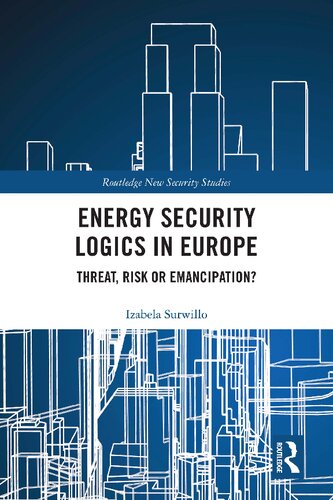

Most ebook files are in PDF format, so you can easily read them using various software such as Foxit Reader or directly on the Google Chrome browser.
Some ebook files are released by publishers in other formats such as .awz, .mobi, .epub, .fb2, etc. You may need to install specific software to read these formats on mobile/PC, such as Calibre.
Please read the tutorial at this link: https://ebookbell.com/faq
We offer FREE conversion to the popular formats you request; however, this may take some time. Therefore, right after payment, please email us, and we will try to provide the service as quickly as possible.
For some exceptional file formats or broken links (if any), please refrain from opening any disputes. Instead, email us first, and we will try to assist within a maximum of 6 hours.
EbookBell Team

4.7
56 reviewsThis book analyzes energy security dynamics in Europe through the prism of security logics.
Drawing on the literature on securitization, security logics and security contexts, it scrutinizes energy security debates and policy developments in Germany, Poland and Ukraine, focusing on the pipeline politics, nuclear energy and renewables sector. The contextualized analysis accounts for the wider historical, socio-economic and cultural background from which energy policies emerge and gives a voice to the different stakeholders―from policymakers to the local NGO sector. The book sheds light on the root causes of different energy policy decisions and illustrates that European energy security is currently driven by four security logics―war, subsistence, risk and emancipation. The logic of emancipation is a newly emergent phenomenon embraced by many bottom-up citizens’ initiatives and manifested in their drive to self-reliance, the rhetoric of liberation and local practices of energy production. The conceptualization and analysis of the emancipatory logic vis-à-vis other energy security logics help to explain European energy context most effectively―with its background conditions, emerging trends and often controversial national policy approaches.
This book will be of much interest to students of critical security studies, energy policy and European politics in general.